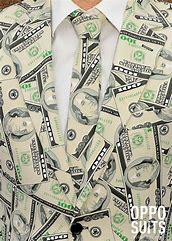Yesterday during South Carolina primary coverage, Tom Steyer closed his campaign for president. Two billionaires to go. (Mariner recognizes Donald as a billionaire for the amount of debt Russia is covering through Deutsch Bank. Okay, he’s a negative billionaire)
The United States elections, federal, state and local, are very much like the wild west: no rules, no law and order and money will win. The delegate method doesn’t eliminate candidates, lack of money does. Until this very day and forthwith, those without enough matching wealth will run out of financial support to sustain a competitive campaign across fifty states. The fact that three billionaires plus endless PAC support for them have so much money, they in effect are able to buy each and every vote to the tune of thousands of dollars each.
In the old days on many occasions, votes actually were bought for cash; now the television stations get the cash; the electorate, bless their soul, does what the television tells them to do.
Tom was the one billionaire who could feel empathy. He actually wants to make things better for the struggling masses yearning to survive. He is as classy as any of the candidates – but he is a billionaire. If the US is to sustain its great experiment as a nation, the citizens must play the role of the Board of Directors of the country – not allow the elite class to control things. That kind of government is called a plutocracy not a democracy.
So on to Super Tuesday. This round, like Steyer in South Carolina, has been targeted by Billionaire Bloomberg. It will be obvious on March third that commoners like Buttigieg and Klobuchar will have inadequate offenses to compete with Bloomberg. On the other hand, enough voters are involved that perhaps the role of Citizen Board of Directors may influence the contests. Let’s hope so – it’s time to settle the Bernie/Joe issue.
It is the democratic religion that whomever is nominated, be it human or a dead fish, every living democrat will appear at the voting booth to cast a vote against Donald. Mariner still contends that by the end of voting in Virgin Islands, Joe will draw more votes than Bernie. And to remind readers, Wisconsin plays a unique role in this election: the next President cannot win except that they carry Wisconsin.
As the title of the post suggests, this will be a one-of-a-kind election. Russia is helping; no one may be allowed to vote because of the pandemic and maybe can’t afford to anyway because of the recession.
Nevertheless, remember to vote on Tuesday, November third. Wear a mask.
Ancient Mariner











